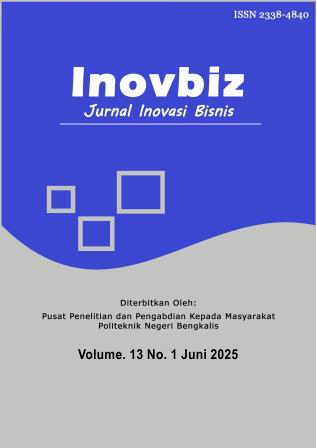Customer Perceptions Of Interest And Profit Margins In Financial Institutions
DOI:
https://doi.org/10.35314/inovbiz.v13.i1.536Abstract
This study aims to analyze customer perceptions of interest rates and profit margins in banking institutions, focusing on competitiveness, fairness, transparency, and their influence on decision-making. Using a quantitative approach, data were collected through surveys targeting bank customers who interact with both conventional and Islamic banking systems. The findings reveal significant differences in customer perceptions: Interest Rates: While perceived as competitive (average score: 3.05), interest rates are considered less fair (2.95–3.04) and less transparent (3.04). Customers associate interest rates with higher risks due to market fluctuations, which affects their trust and decision-making (3.20). Profit Margins: Islamic banking's profit margins outperform interest rates in competitiveness (3.14), fairness (3.12–3.28), and transparency (3.11). The fixed nature of profit margins offers stability and aligns with Sharia principles, leading to higher trust and influence in customer decisions (3.29). The study concludes that profit margins are perceived as more favorable due to their adherence to fairness and transparency principles, whereas interest rates are associated with risks and limited adaptability. Conventional banks need to improve transparency and fairness, while Islamic banks should focus on expanding accessibility and educating customers about Sharia-compliant mechanisms. The findings emphasize the growing preference for ethical and stable financial systems










